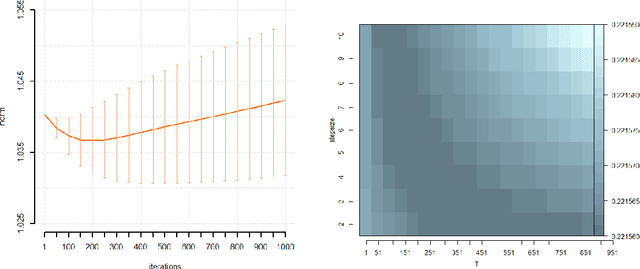From inexact optimization to learning via gradient concentration
Paper and Code
Jun 24, 2021
Optimization was recently shown to control the inductive bias in a learning process, a property referred to as implicit, or iterative regularization. The estimator obtained iteratively minimizing the training error can generalise well with no need of further penalties or constraints. In this paper, we investigate this phenomenon in the context of linear models with smooth loss functions. In particular, we investigate and propose a proof technique combining ideas from inexact optimization and probability theory, specifically gradient concentration. The proof is easy to follow and allows to obtain sharp learning bounds. More generally, it highlights a way to develop optimization results into learning guarantees.
 Add to Chrome
Add to Chrome Add to Firefox
Add to Firefox Add to Edge
Add to Edge